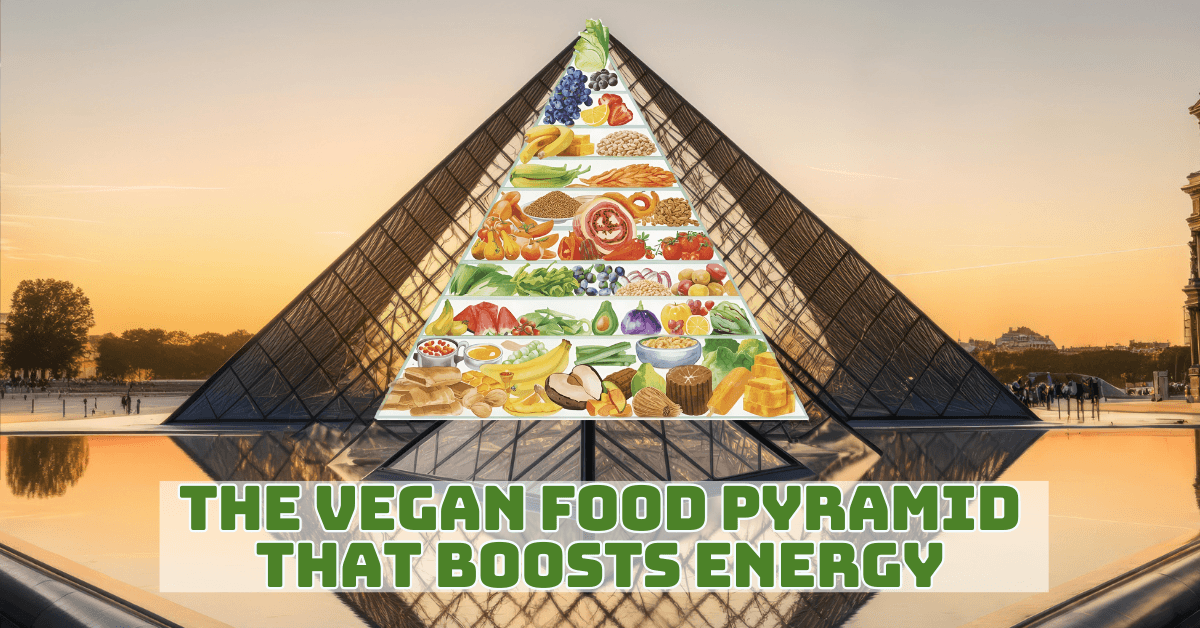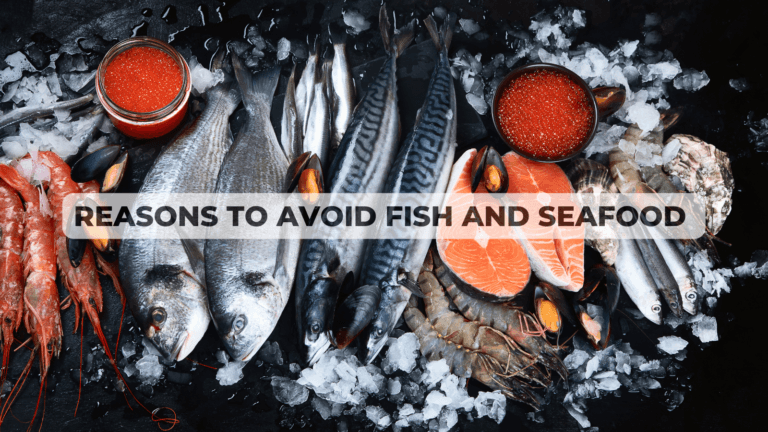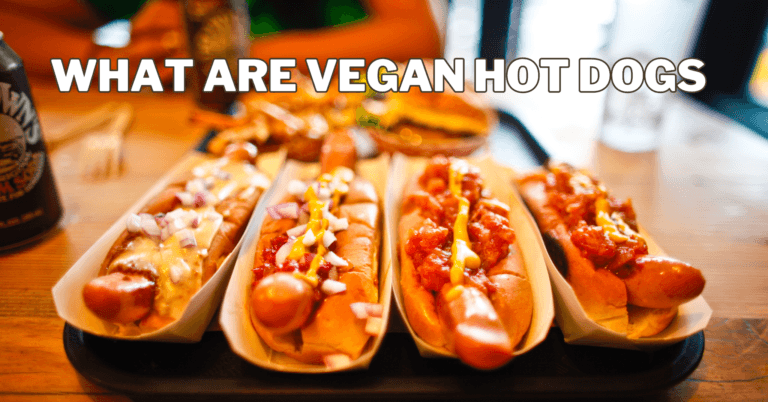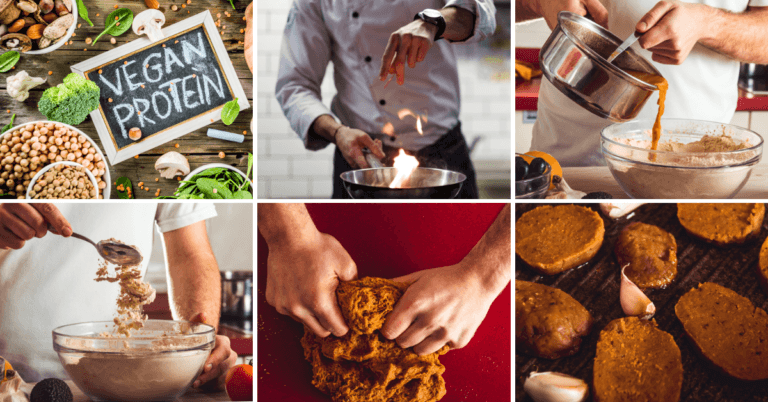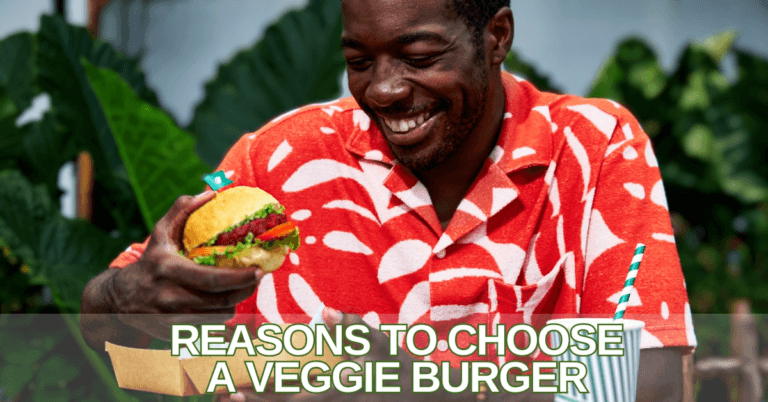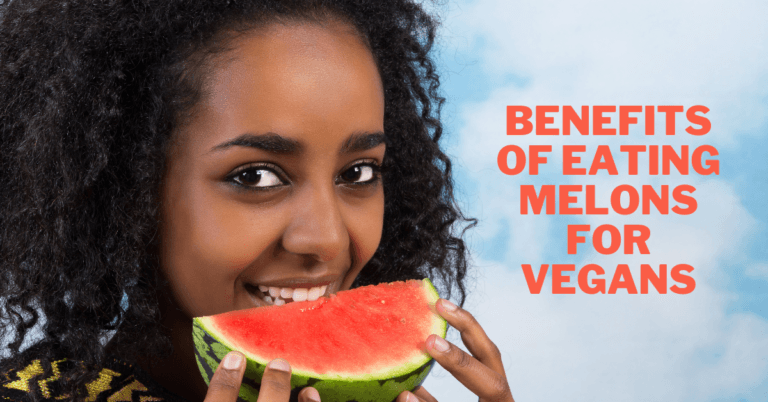The Vegan Food Pyramid That Boosts Energy
The Vegan Food Pyramid is your ultimate roadmap to balanced, plant-based eating. It helps you fuel your body with the right mix of fruits, vegetables, grains, proteins, and healthy fats.
“A well-planned vegan diet can meet all your nutritional needs and energize your life,” as dietitian Brenda Davis states. Whether new to veganism or refining your meals, this guide simplifies healthy eating for lasting wellness and vitality.
What Is The Vegan Food Pyramid?
The vegan food pyramid is a visual guide that shows how to eat a balanced plant-based diet. Just like the regular food pyramid, it’s designed to help you understand what foods you should eat more of — and which ones to enjoy in moderation.
At the base, you’ll find whole plant foods — vegetables, fruits, grains, and legumes — which should make up the bulk of your meals.
As you move up, you’ll see nuts, seeds, and fortified foods, and at the very top, you’ll find occasional treats or oils. It’s your roadmap to eating healthy, varied, and nutrient-rich meals — the vegan way.
The Vegan Food Pyramid That Boosts Energy
1. Whole Grains – The Energy Foundation
Whole grains form the base of the vegan food pyramid, providing slow-releasing carbohydrates for sustained energy and fibre for digestive health.
Registered Dietitian Brenda Davis, co-author of Becoming Vegan, highlights that grains like quinoa, brown rice, oats, and barley supply vital B vitamins, magnesium, and iron.
Nutritionists recommend at least 3–6 servings daily, such as a bowl of oatmeal, quinoa salad, or whole-grain toast. Rotating different grains ensures variety in amino acids and minerals.
Davis also advises choosing intact or minimally processed grains to maintain maximum nutrient density, supporting blood sugar control and long-term cardiovascular health.
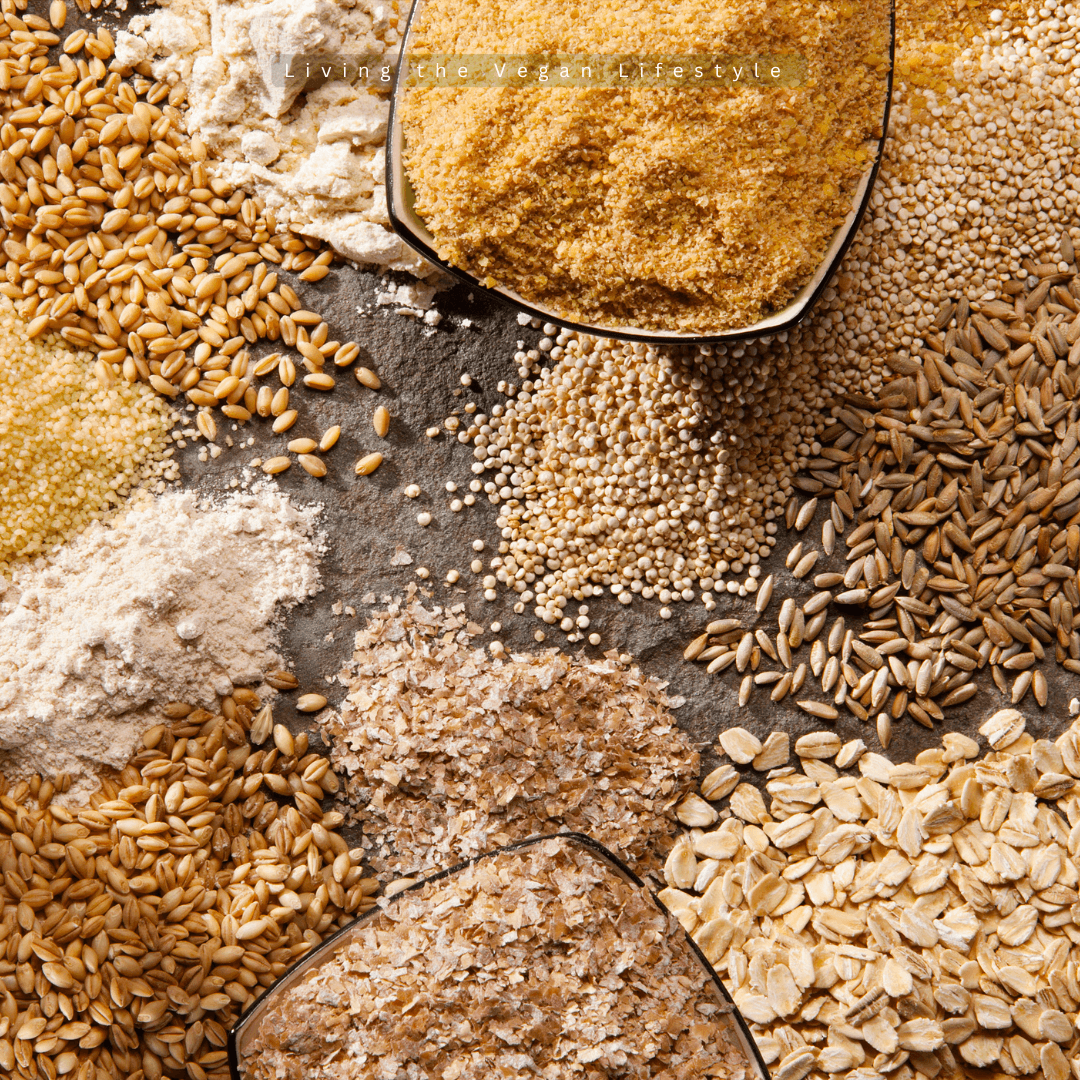
2. Vegetables – The Nutrient Powerhouse
Vegetables sit just above grains, forming the second layer of the vegan pyramid. Nutrition experts emphasize the importance of vitamins A, C, K, and folate, plus minerals like calcium and potassium.
Dietitian Dr. Michael Greger, founder of NutritionFacts.org, notes that leafy greens such as kale and spinach are rich in calcium and iron, crucial for bone and blood health. Aim for 4–5 servings daily, mixing raw salads, roasted vegetables, and steamed greens.
Include colour diversity—orange carrots, purple cabbage, and green broccoli—to cover the antioxidant spectrum. Eating vegetables with a drizzle of olive oil improves nutrient absorption effectively.
3. Fruits – Natural Sweetness And Vitality
Fruits bring natural sweetness, hydration, and antioxidants to your plate. According to Harvard Health Publishing, fruits deliver essential vitamins like C and A, fibre for gut balance, and phytochemicals that reduce chronic disease risk.
Nutritionists recommend 2–4 servings daily, such as apples, oranges, berries, or bananas. Whole fruits are preferred over juices for fibre content and slower sugar release.
Registered Dietitian Julieanna Hever, known as “The Plant-Based Dietitian,” encourages eating colourful fruits—especially berries and citrus—for their polyphenol and flavonoid benefits. Seasonal fruits also offer fresher nutrients and a sustainable environmental footprint, aligning with holistic vegan living.
4. Legumes – The Vegan Protein Source
Legumes form the core of plant-based protein in the vegan food pyramid. They include beans, lentils, chickpeas, peas, and soy-based products.
According to Dr. Neal Barnard of the Physicians Committee for Responsible Medicine, legumes supply protein, iron, zinc, and soluble fibre that lowers cholesterol.
Nutritionists suggest 2–3 servings daily, such as lentil curry, tofu stir-fry, or hummus dip. Combining legumes with vitamin C-rich foods like tomatoes enhances iron absorption.
Experts emphasize that regular legume intake supports satiety, muscle repair, and blood sugar stability, making them a cornerstone of any well-balanced vegan diet for both athletes and families.

5. Nuts And Seeds – Healthy Fats And Minerals
Nuts and seeds are small but mighty. They provide healthy unsaturated fats, plant protein, and essential minerals like magnesium, selenium, and zinc.
According to nutrition researcher Dr. Joel Fuhrman, just a handful of almonds, walnuts, or chia seeds daily can improve heart health and reduce inflammation.
Aim for 1–2 servings per day, about 30 grams of nuts or 2 tablespoons of seeds. Flax, hemp, and chia are especially valuable for omega-3 fatty acids, which are crucial for brain function.
Lightly toasting or soaking nuts enhances digestibility. Nutritionists note that incorporating these daily supports longevity and optimal nutrient balance on a vegan diet.
6. Fortified Plant-Based Alternatives – Essential Nutrient Support
Because vegan diets exclude dairy, fortified plant-based alternatives fill vital nutritional gaps. These include fortified soy, oat, or almond milk and vegan yogurts enriched with calcium, vitamin D, and B12.
According to the British Dietetic Association, fortified foods are crucial for meeting micronutrient needs without supplements.
Dietitian Virginia Messina, co-author of Vegan for Life, advises choosing unsweetened varieties and checking labels for fortified levels. Consuming 1–2 servings daily helps maintain bone and immune health.
Adding fortified milk to cereal or smoothies provides extra nutrition effortlessly, ensuring that vegan diets stay balanced and nutrient-complete for long-term wellness.
7. Healthy Oils – Concentrated Energy
Healthy oils, while used sparingly, are essential for nutrient absorption and hormone balance. Experts like Dr. Caldwell Esselstyn recommend minimal use of oils, focusing instead on whole-fat sources like avocados or nuts for heart health.
However, small amounts of cold-pressed olive, flaxseed, or avocado oil can enhance absorption of fat-soluble vitamins A, D, E, and K.
Limit intake to 1–2 tablespoons daily, as oils are calorie-dense. Nutritionists emphasize moderation rather than elimination.
Choosing unrefined oils preserves antioxidants, promoting cellular health. Using them as salad dressings or for low-heat cooking adds flavour and nutritional depth to vegan meals.

8. Occasional Treats – Mindful Indulgence
Even the most balanced vegan diet allows for treats. Vegan desserts, dark chocolate, or baked snacks can fit healthfully when enjoyed mindfully.
According to Registered Dietitian Sharon Palmer, small indulgences support psychological satisfaction and prevent restrictive eating patterns.
The key is moderation—limit refined sugar and processed fats while savouring natural options like date-based sweets or fruit sorbets. Portion control matters more than prohibition.
Including the occasional treat nurtures a sustainable lifestyle, not a rigid diet. Balance and enjoyment are essential parts of long-term health, and mindful eating ensures treats become positive moments rather than sources of guilt.
Vegan Pyramid For Different Goals
1. For Weight Loss
A vegan pyramid for weight loss emphasizes fibre-rich foods like leafy greens, lentils, and whole grains to keep you full longer. Minimize high-fat plant foods like nuts and oils, but don’t cut them out entirely.
Portion control is key—fill half your plate with non-starchy vegetables. Nutritionists like Dr. Neal Barnard recommend low-glycemic foods and plenty of water to support metabolism and reduce cravings naturally.
2. For Muscle Gain
When building muscle, increase your intake of protein-rich vegan foods such as tofu, tempeh, lentils, chickpeas, and quinoa.
Add more calories from whole grains, avocados, and nut butters to fuel your workouts. Dietitian Brenda Davis suggests pairing proteins with vitamin C-rich foods to enhance iron absorption.
Smoothies with plant protein powder, oats, and berries make easy pre- or post-workout meals that fit perfectly into a vegan muscle-building pyramid.
3. For Heart Health
The heart-focused vegan pyramid emphasizes foods low in saturated fat and rich in antioxidants. Prioritize leafy greens, oats, chia seeds, and berries.
Replace coconut oil with olive or flaxseed oil for healthier fats. Nutrition experts like Dr. Caldwell Esselstyn recommend eating whole, unprocessed plant foods to support optimal heart function.
Limit processed vegan snacks, and choose beans and lentils for protein. Daily servings of walnuts and ground flaxseed promote good cholesterol balance.
4. For Energy And Stamina
Complex carbohydrates like quinoa, sweet potatoes, and brown rice, as well as iron-rich spinach and lentils, will help you feel more energized.
Add vitamin B12-fortified foods or supplements, as recommended by registered dietitian Ginny Messina. Keep hydrated and include potassium-rich bananas or coconut water.
The vegan pyramid for energy includes steady carb intake throughout the day—small meals every 3–4 hours help maintain blood sugar and prevent fatigue during physical or mental activities.

5. For Digestive Health
A vegan pyramid promoting gut health centers on fibre diversity—fruits, vegetables, whole grains, and fermented foods like sauerkraut or plant-based yogurt.
These feed beneficial gut bacteria and promote smoother digestion. Nutritionists suggest including prebiotic foods such as onions, garlic, and asparagus for better gut balance.
Avoid overly processed vegan products and refined sugars. Drink plenty of water, and consider probiotics from tempeh, miso, or kombucha to maintain a thriving digestive system.
6. For Healthy Skin
A vegan pyramid for glowing skin focuses on hydration, antioxidants, and essential fatty acids. Prioritize colourful fruits, leafy greens, avocados, and nuts to protect skin from damage.
Nutritionist Dr. Michael Greger recommends vitamin C-rich foods like oranges and bell peppers to boost collagen. Omega-3 sources such as chia seeds and flaxseed oil help maintain elasticity.
Skin that is naturally glowing and youthful-looking can be achieved by limiting processed meals and drinking lots of water.
7. For Better Sleep
If your goal is restful sleep, the vegan pyramid can help. Include magnesium-rich foods like spinach, pumpkin seeds, and bananas to relax your muscles.
Whole grains and legumes support serotonin production, improving sleep quality. Dietitian Julieanna Hever advises evening meals with complex carbs and herbal teas like chamomile.
Avoid caffeine and sugar before bed. A balanced vegan pyramid supports your body’s natural rhythm and promotes deeper, more restorative rest.
8. For Hormonal Balance
A vegan pyramid tailored for hormonal balance emphasizes whole soy foods, flaxseeds, and leafy greens. These support estrogen regulation and overall endocrine health.
Registered dietitian Dr. Neal Barnard recommends limiting saturated fats and processed foods to reduce hormonal disruptions. Include iron-rich lentils, calcium-fortified plant milk, and B12 supplements for stability.
Balanced meals with whole grains and fresh produce help reduce inflammation and support smooth hormone function naturally.
Want to Share Your Passion for Vegan Living?
Discover how easy and fulfilling vegan living can be —
from recipes and travel to lifestyle and sustainability tips.
Read this blog post next:
How to Start a Vegan Blog (and Turn Your Passion into Purpose).
Superfoods To Enhance Your Vegan Food Pyramid
Even a well-balanced vegan diet can benefit from a few superfood boosts. These nutrient-packed ingredients elevate your meals and fill nutritional gaps naturally.
Nutritionists like Julieanna Hever and Brenda Davis recommend rotating them for variety and maximum health impact. Let’s explore a few powerful ones.
1. Spirulina
The blue-green algae spirulina is rich in iron, protein, and antioxidants. Add a teaspoon to smoothies, fresh juices, or energy balls for a nutrition punch. Its earthy taste blends well with citrus fruits or bananas.
You can buy spirulina powder or tablets at health food stores, vegan markets, or online retailers like iHerb and Amazon. According to dietitians, regular use supports immunity, energy levels, and detoxification — making it an ideal addition to plant-based nutrition.
2. Chia Seeds
Small but mighty, chia seeds are high in fibre, calcium, and omega-3 fatty acids. Stir them into oatmeal, overnight puddings, or smoothies for texture and health benefits.
They absorb liquid and form a gel-like consistency, perfect for vegan desserts. Bulk food bins, organic sections, and grocery stores are easy places to find them.
Nutrition experts suggest 1–2 tablespoons daily for heart health and digestion support. Chia seeds are versatile and fit beautifully into breakfast or snack routines.
3. Nutritional Yeast
Nutritional yeast, often called “nooch,” offers a cheesy, nutty flavour and is packed with vitamin B12, protein, and folate. Sprinkle it over popcorn, pasta, soups, or mashed potatoes for a flavour boost. It’s available in supermarkets, health stores, and vegan specialty shops.
Registered dietitian Virginia Messina recommends using it daily to maintain B12 levels, especially in fully vegan diets. It’s a delicious way to enhance taste while meeting essential nutritional needs naturally and conveniently.
4. Seaweed
Seaweed adds iodine, calcium, and iron, which are vital for thyroid health and metabolism. Try nori sheets for homemade vegan sushi, sprinkle dulse flakes on salads, or mix wakame into miso soup. You can find seaweed at Asian grocery stores, health food shops, or online markets.
Nutritionists emphasize the trace minerals that support hormone balance and cognitive function. A few servings weekly make a big difference, enriching meals with both nutrients and ocean-inspired umami flavour.
5. Moringa Powder
Moringa, often called the “miracle tree,” is high in iron, calcium, and vitamin C. Stir half a teaspoon into smoothies, soups, or green juices for a natural energy lift.
Mangos and pineapples go nicely with their mellow, earthy flavour. Available at organic food stores and online wellness brands, moringa supports immunity and combats fatigue.
Nutrition experts note that it’s beneficial for vegans seeking plant-based sources of iron and antioxidants in their daily diet.
6. Hemp Seeds
Hemp seeds are complete proteins containing all nine essential amino acids, plus omega-3 and omega-6 fats. Sprinkle them on salads, smoothie bowls, or roasted veggies for a nutty flavour. They blend easily into dressings and sauces, too.
You can find hemp seeds in grocery stores, bulk bins, or online shops. Registered Dietitian Brenda Davis highlights their importance for muscle health and hormone balance. Just two tablespoons a day provide lasting energy and nutritional support.
7. Matcha
Green tea powder with antioxidants and catechins that speed up metabolism is called matcha. Whisk it into warm water for tea, mix it into smoothies, or add it to vegan baked goods.
Its earthy flavour pairs beautifully with oat milk and vanilla. Buy matcha at Japanese stores, health food shops, or reputable online tea sellers.
Nutritionists praise its steady energy release compared to coffee. One serving daily supports focus, detoxification, and overall vitality while fitting seamlessly into your morning routine.
8. Maca Root Powder
Maca root powder is known for enhancing energy, mood, and hormonal balance. Add one teaspoon to smoothies, oatmeal, or plant-based lattes for a mild caramel flavour.
It’s available in superfood aisles or online wellness stores. Holistic nutritionists claim that maca is ideal for active lifestyles since it promotes stamina and adrenal health.
Use it regularly but moderately, as its benefits build over time. It’s an easy, delicious addition to your vegan food pyramid routine.
9. Goji Berries
Antioxidants, beta-carotene, and vitamin C found in goji berries improve skin health and immunity. Add them to trail mixes, oatmeal, or vegan yogurt for a tart-sweet flavour.
You can buy them in dried form from supermarkets, health stores, or online. Soak briefly in warm water to soften before using.
Nutritionists recommend a small handful daily to promote vision and immune support. Goji berries make every vegan meal more colourful and nutrient-dense effortlessly.
10. Flaxseeds
Flaxseeds are a vegan staple packed with omega-3 fats, lignans, and fibre. Grind them for better absorption and sprinkle into smoothies, pancake batter, or soups.
One tablespoon daily supports heart and digestive health. You can find flaxseeds in supermarkets, bulk bins, or health stores.
Dietitian Julieanna Hever recommends them as a daily essential in vegan diets for hormone balance and inflammation control. Flaxseeds are affordable, versatile, and easy to blend into any meal plan.
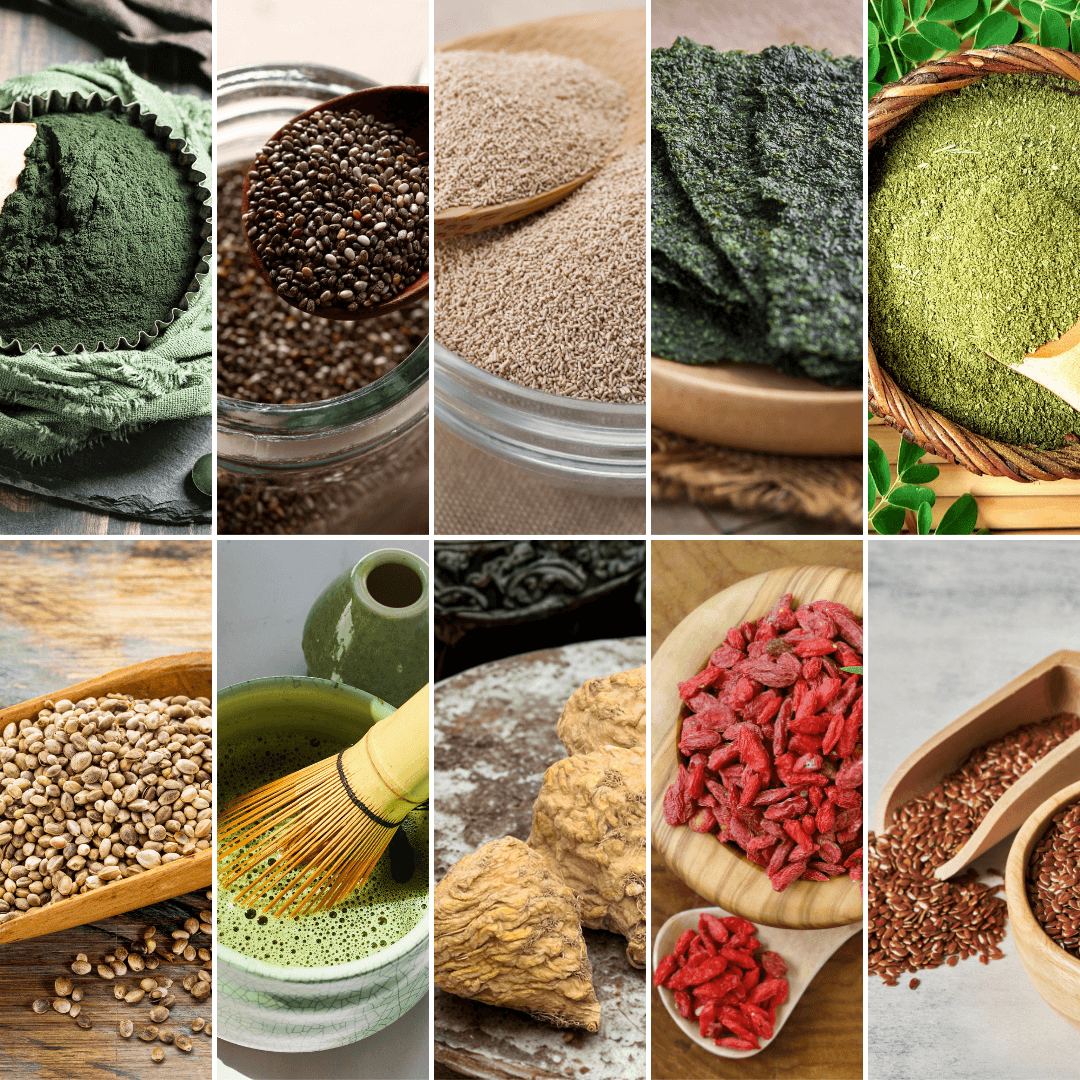
FAQs
Do I Need Supplements On A Vegan Diet?
Yes, you need supplements for some nutrients like vitamin B12 and D. Fortified plant milk helps too. Check with a nutritionist for personalized advice and balanced intake.
Can Kids Follow The Vegan Food Pyramid?
Yes, with proper planning. Include protein-rich legumes, grains, fruits, and fortified plant milk. Ensure enough calories, B12, and calcium for growth. Consult a pediatric dietitian for guidance.
Conclusion
Embracing the Vegan Food Pyramid is more than just a diet—it’s a lifestyle rooted in health, balance, and compassion. By choosing diverse plant-based foods daily, you can thrive physically and mentally while supporting a sustainable planet.
Remember, nutrition is about consistency and variety. Follow the vegan food pyramid to create colourful, satisfying meals that empower your well-being and celebrate the beauty of plant-based living.
I trust you enjoyed this article on The Vegan Food Pyramid That Boosts Energy. Please stay tuned for more plant-based recipes, vegan travel tips, and lifestyle inspiration.
Take care!
— JeannetteZ 🌿
💬 Your Opinion Is Important To Me
Do you have thoughts, ideas, or questions? I’d love to hear from you. Please leave your comments below, or email me directly at Jeannette@LivingTheVeganLifestyle.org.
📚 More Vegan Lifestyle Reads
🌱 My #1 Recommendation for Online Success
Sharing my passion for vegan living — from food to fashion — has been such a rewarding journey.
If you’ve ever dreamed of building your own ethical lifestyle brand or blog, this is the best place to start.
🌟 See How Vegan Bloggers Build Online Income — Try WA Free (No Credit Card Needed)
Disclosure
This post may contain affiliate links. As an Amazon Associate and participant in other affiliate programs, I earn from qualifying purchases at no extra cost to you. Please read my full affiliate disclosure.

